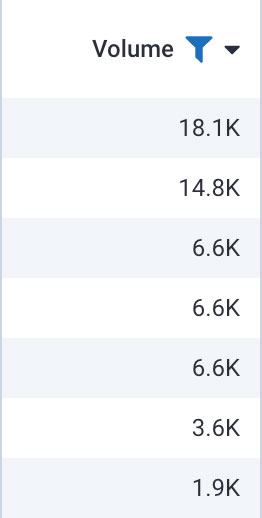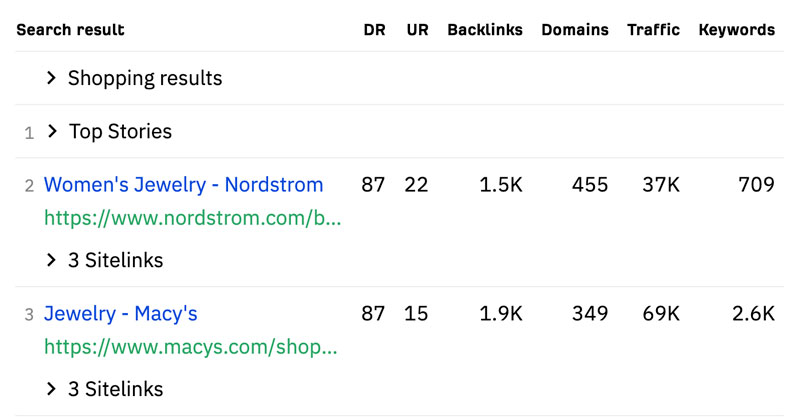Anyone going to google to search for something always has a specific topic in mind. This is exactly why keywords are so important! If you are interested in on-page SEO and keyword optimization, you expect your search results to be loaded with content that covers those topics, right? Your prospects do the same!
What is Keyword Optimization?
Keyword optimization, also known as keyword research, is the act of selecting, analyzing, and researching the best keywords to target for your site. Selecting the best ones drives quality traffic from search engines to your website.
Keyword optimization is a critical step for on-page SEO success, which focuses on what the site says to the search engine. Adding keywords is critical to your on-page SEO and website’s success.
Why Do Keywords Matter?

Keywords are ideas and topics that define what your content is about. On-page SEO keywords range from single words to complex phrases. Your audience will use these them when searching for something related to your brand. For example, if you take everything off your page—images, video, and copy—and only leave simple words and phrases, you have your primary keywords.
Keywords are essential because they link what people are searching for and the content you are providing that fulfills that search. In addition, on-page SEO techniques drive organic traffic through your site and help you rank higher in search engines.
Is Keyword Placement Important?
Keyword placement is vital to the success of your page. If you are hoping for organic users, it is crucial to ensure your placement feels natural. On-page SEO focuses on appropriate keyword placement tactics, ensuring that it is only placed organically within the content and not overused.
Ensure your keyword placement is accurate and flows effortlessly; it is vital that your on-page SEO content is compelling and provides genuine and authentic value to the users visiting your page.
Top Tips That Make a Good On-Page SEO Keyword
- Volume
- Relevance
- Value
- Competition
Tip #1. Keyword Search Volume

If you optimize all your keywords but none of them are what people are searching for, you will not get any traffic to your blog. Therefore, it is essential to do your research and figure out which ones get a significant search overall.
While choosing the right keyword can feel like a daunting task, focus on the data and your goal for the content you are sharing. For example, are you looking for someone to buy your product or learn about your service? Then, continue to ask yourself the right questions to provide the best content.
Tip #2. Are Your Keywords Relevant?
It will feel tempting to choose keywords with the highest search volumes, but it is crucial to check that they are still relevant to your content. For example, if ‘dinosaur feet’ is the most searched keyword but your content covers dinosaur teeth, using the more common keyword ‘dinosaur feet’ will drive readers away from your site.
On-page SEO tactics focus on compelling content and attention-grabbing headers. Using keywords in headers is also a way to let your audience know what they will be reading about. Making sure your headers match your keywords is a great way to bring users to your site.
Tip #3. What is Your Keywords Conversion Value?
Conversion value is the number of conversions per ad interaction. How many of these keywords are converting into an actual result? If you don’t focus on engagement or sales when using your keywords, you enable curious browsing. Curious browsing is bringing users to your site without any real goal.
If you want to continue to drive traffic to your blog and have repeat users return to your site, you need to make sure that you are offering the content they were looking for when your site popped up. Therefore, your conversion value is vital, as is your keyword choice.
Tip #4. Be Careful of Keyword Competition

Keyword competition is the measure of how difficult it will be to rank for a particular keyword. Therefore, you should always perform due diligence when it comes to keyword research. This gives insight into your audience’s interests and confirms you chose the correct ones.
It is also important to read information from your competitors to see what keywords they may use most often and make sure to differentiate yourself from your competition.
Great Ways to Help You Choose the Right Keywords
- Think Like a Customer
- Study the Competition
- Understand the Long-Tail Keyword
- Analyze the Results
The Benefits of Thinking Like a Customer
It is essential to identify with your target audience and put yourself in the shoes of the users you are trying to draw to your site. For example, ask yourself, “If I wanted to find this product or service, what would I type into Google?”
How to Study the Competition
If you have high competition – make a list of your competitors and then go to their websites to see what keywords they have targeted. Then, read their content closely and see what you gain from it. You may even see something you were forgetting or find new ideas.
What is a Long-Tail Keyword?
Long-tail keywords are a combination of three or more words or phrases. While they show up lower in overall search volumes, they attract more relevant traffic and are easier to rank well on overall. Long-tailed keywords are tailored to specific content.
Time to Analyze the Results

After spending your time choosing the perfect set of keywords for your content, the next step is to monitor and analyze the results of your hard work. Finally, don’t forget to use your keywords wherever possible while making sure they are organically placed throughout your content.
While choosing the right keywords takes a lot of thought and time, it is imperative to your on-page SEO results. Keyword optimization will place your content a step above the others. Knowing how to go against your competition while positively gaining new traffic to your site is the key to long-term success.
